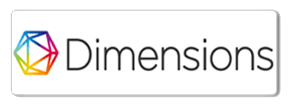HOW TO DEAL WITH FAILURE IN MEDICAL STUDENTS
DOI:
https://doi.org/10.70248/jp.v1i1.1447Keywords:
Medical students, stress, stress factorsAbstract
A medical student is someone who has studied as a doctor for five and a half years at either a state or private university. The large amount of time spent reading reading materials, the need to understand how to effectively serve the community in terms of health, and expectations from parents cause medical students to have higher levels of stress. How to overcome this requires medical students to carry out self-regulation to reduce stress and frustration and facilitate the implementation of problem solving strategies, aspects which include metacognition, motivation and behavior, the influencing factors are the individual (self), behavior and attitude. environment, and also students need to affirm themselves to overcome psychological phenomena, especially stress, emotional intelligence to motivate medical students, overcome frustration and environmental demands or pressure, aspects of emotional intelligence, self-awareness, influencing factors are internal factors that come from within oneself . oneself and external factors that come from outside such as the environment where a person lives, non-family and interpersonal. Next there is self-efficacy, namely a person's belief in their ability to manage the situation they are experiencing. The aspects contained in self-efficacy include quantities related to the level of difficulty of the task, strength, namely how confident the individual is in using it. to carry out tasks, generality, namely individual self-confidence to complete certain tasks completely and well, factors that influence self-efficacy are changes in behavior and emotional arousal.
Keywords: Medical Students, Stress, Stress Factors
References
Abdulghani, H. M., AlKanhal, A. A., Mahmoud, E. S., Ponnamperuma, G. G., & Alfaris, E. A. (2011). Stress and its effects on medical students: A cross-sectional study at a college of medicine in Saudi Arabia. Journal of Health, Population and Nutrition, 29(5), 516–522.
Amaliah, F. R., Dewanti, R., & Samudra, D. (2017). The Relationship Between Self-Efficacy and Work Readiness in Final Level Students Class of 2017 [ Hubungan Antara Efikasi Diri dengan Kesiapan Kerja pada Mahasiswa Tingkat Akhir Tahun 2017 ], 1–7.
Amaranggani, A. P., Prana, T. T., Arsari, N. M. C. D., Surbakti, A. M., & Rahmandani, A. (2021). Self-Compassion dan Negative Emotional States Pada Mahasiswa Kedokteran Umum: Hubungan dan Prevalensi. Journal An-Nafs: Kajian Penelitian Psikologi, 6(2), 215–230.
Ameh, P. O., Uti, O. G., & Daramola, O. O. (2022). Study motivations, specialty preferences, and empathy of dental students in a Nigerian university. Pan African Medical Journal, 41.
Bayantari, N. M., Indonesiani, S. H., & Apsari, P. I. B. (2022). Regulasi Diri dalam Belajar dan Hubungannya dengan Stres Akademik Pada Mahasiswa Tingkat Pertama Fakultas Kedokteran. Jurnal Imiah Pendidikan dan Pembelajaran, 6(3), 609–618.
Cho, K. K., Marjadi, B., Langendyk, V., & Hu, W. (2017). The self-regulated learning of medical students in the clinical environment - A scoping review. BMC Medical Education, 17(1), 1–13. BMC Medical Education.
Coronado-Maldonado, I., & Benítez-Márquez, M. D. (2023). Emotional intelligence, leadership, and work teams: A hybrid literature review. Heliyon, 9(10).
Gatot, D. B., Adisasmito, W., & Muhammadiyah, R. S. (2005). Di Instalasi Rawat Inap Rsud Gunung Jati Cirebon. Universitas Stuttgart, 9(1), 1–8.
Guglielmino, P., & Guglielmino, L. M. (2006). Culture, Self-Directed Learning Readiness, and per Capita Income in Five Countries. SAM Advanced Management Journal, 71(2), 21.
Hurlock, E. (2004). Psikologi Perkembangan. Jakarta: PT Gramedia Pustaka.
Inama, S. (2021). Gambaran Tingkat Stres Mahasiswa Fakultas Kedokteran Universitas Sumatera Utara Dalam Sistem Pembelajaran Daring Pada Era Pandemi Covid-19, 46.
Indarwati. (2018). Gambaran Stres Mahasiswa Tingkat Akhir Dalam Penyusunan Skripsi Di Fakultas Kedokteran Dan Ilmu Kesehatan. UIN Alauddin Makassar.
Jiménez-Picón, N., Romero-Martín, M., Ponce-Blandón, J. A., Ramirez-Baena, L., Palomo-Lara, J. C., & Gómez-Salgado, J. (2021). The relationship between mindfulness and emotional intelligence as a protective factor for healthcare professionals: Systematic review. International Journal of Environmental Research and Public Health, 18(10), 1–14.
Limen, G., Runtuwene, J., & Wagiu, C. (2018). Hubungan Tingkat Kecemasan dalam Menghadapi UKMPPD OSCE dengan Nilai UKMPPD Mahasiswa Fakultas Kedokteran Universitas Sam Ratulangi. Jurnal Biomedik (Jbm), 10(3), 159.
Mardziah, B., & Abdullah, H. (1997). Self-Directed Learning, 1995–1998.
Merriam, S. B. (2001). Andragogy and Self-Directed Learning: Pillars of Adult Learning Theory. New Directions for Adult and Continuing Education, 2001(89), 3.
Murad, M. H., & Varkey, P. (2008). Self-directed learning in health professions education. Annals of the Academy of Medicine Singapore, 37(7), 580–590.
Novitasari, D., Hutagalung, D., Silitonga, N., Johan, M., & Asbari, M. (2021). Membangun Perencanaan dan Kinerja Tim: Analisis Pengaruh Efikasi Kolektif dan Iklim Kecerdasan Emosional. Jkbm (Jurnal Konsep Bisnis Dan Manajemen), 7(2), 191–205.
Penelitian, L., & Pengabdian, D. A. N. (2025). Jurnal Keperawatan Jurnal Keperawatan, 17(1), 153–164.
Perryman, L., Haigh, C., Bullock, S., Hart, W., Gray, K., Nestel, D., Perryman, L., et al. (n.d.). Medical students ’ perceptions of positive and negative aspects of self-directed learning in the clinical workplace RESEARCH TEAM.
Prayitno, S. H., & Ayu, S. M. (2018). Hubungan Antara Tipe Kepribadian Introvert Dan Ekstrovert Dengan Kejadian Stres Pada Koasisten Angkatan Tahun 2011 Fakultas Kedokteran Universitas Udayana. Jurnal Insight Fakultas Psikologi Universitas Muhammadiyah Jember, 000, 60–73.
Rachmah, D. N. (2015). Regulasi Diri dalam Belajar pada Mahasiswa yang Memiliki Peran Banyak. Jurnal Psikologi, 42(1), 61.
Rafie, R. (2021). Perbedaan Metode Afirmasi Diri Dan Konseling Untuk Pencegahan Kecemasan Menghadapi Tes (Test Anxiety) Pada Mahasiswa Kedokteran Di Universitas Malahayati. Jurnal Kebidanan Malahayati, 7(1), 123–130.
Rahmayani, R. D., Liza, R. G., & Syah, N. A. (2019). Gambaran Tingkat Stres Berdasarkan Stressor pada Mahasiswa Kedokteran Tahun Pertama Program Studi Profesi Dokter Fakultas Kedokteran Universitas Andalas Angkatan 2017. Jurnal Kesehatan Andalas, 8(1), 103.
Setiady, I. N., Rochman, T., Edy, S., Bangsa, U. P., Bangsa, U. P., Bangsa, U. P., Pembelajaran, M., et al. (2021). Pengaruh Efikasi Diri dan Berbagi Pengetahuan Terhadap Manajemen Pembelajaran dan Dampaknya pada Kinerja. Jurnal EMAS : Ekonomi Manajemen Akuntansi Kewirausahaan, 8–16.
Shadid, A., Shadid, A. M., Shadid, A., Almutairi, F. E., Almotairi, K. E., Aldarwish, T., Alzamil, O., et al. (2020). Stress, Burnout, and Associated Risk Factors in Medical Students. Cureus, 12(1), 1–13.
Shokoohi, S., Emami, A. H., & Mohammadi, A. (2014). Medical Education Online. Medical Education Online, 19, 4–6.
Song, L., & Hill, J. R. (2007). A conceptual model for understanding self-directed learning in online environments. Journal of Interactive Online Learning, 6(1), 27–42.
Sullivan, P. S. O. (n.d.). Self-Directed Learning.
Thinagar, M., & Westa, W. (2017). Tingkat Kecemasan Antara Mahasiswa Kedokteran dari Universitas Udayana dan Implikasinya Pada Hasil Ujian. Intisari Sains Medis, 8(3), 181–183.
Umiyati. (2021). Hubungan Dukungan Sosial dengan eEfikasi diri pada mahasiswa fakultas psikologi Universitas Islam Negeri Maulana Malik Ibrahim Malang angkatan 2017, 4(1), 6.
Utari, A. R. T., & Rustika, I. M. (2021). Konsep Diri Dan Kecerdasan Emosional Terhadap Perilaku Prososial Remaja Sekolah Menengah Atas. Jurnal Studia Insania, 8(2), 80.
Wahyudi R, Bebasari E, N. E. (2015). Gambaran tingkat stres pada mahasiswa Fakultas Kedokteran Universitas Riau tahun pertama. Pekanbaru: Universitas Riau.
Xie, Y. J., Cao, D. P., Sun, T., & Yang, L. Bin. (2019). The effects of academic adaptability on academic burnout, immersion in learning, and academic performance among Chinese medical students: A cross-sectional study. BMC Medical Education, 19(1), 1–8. BMC Medical Education.
Yuliyani, R. (2017). 234933-Peran-Efikasi-Diri-Self-Efficacy-Dan-Kem-63a319D4. Jurnal Formatif, 7(2), 130–143.


















